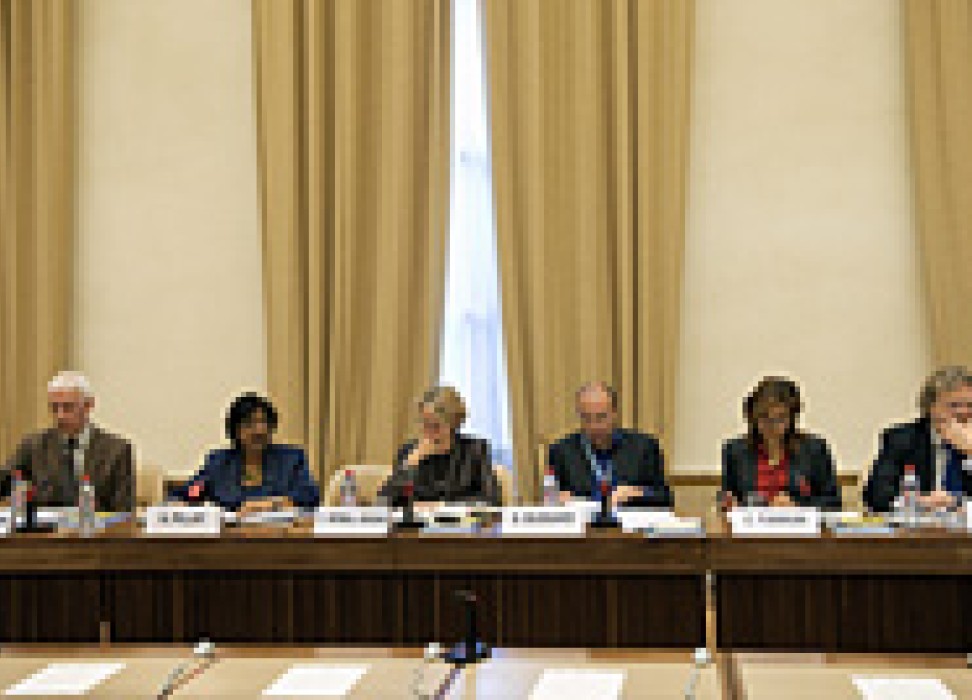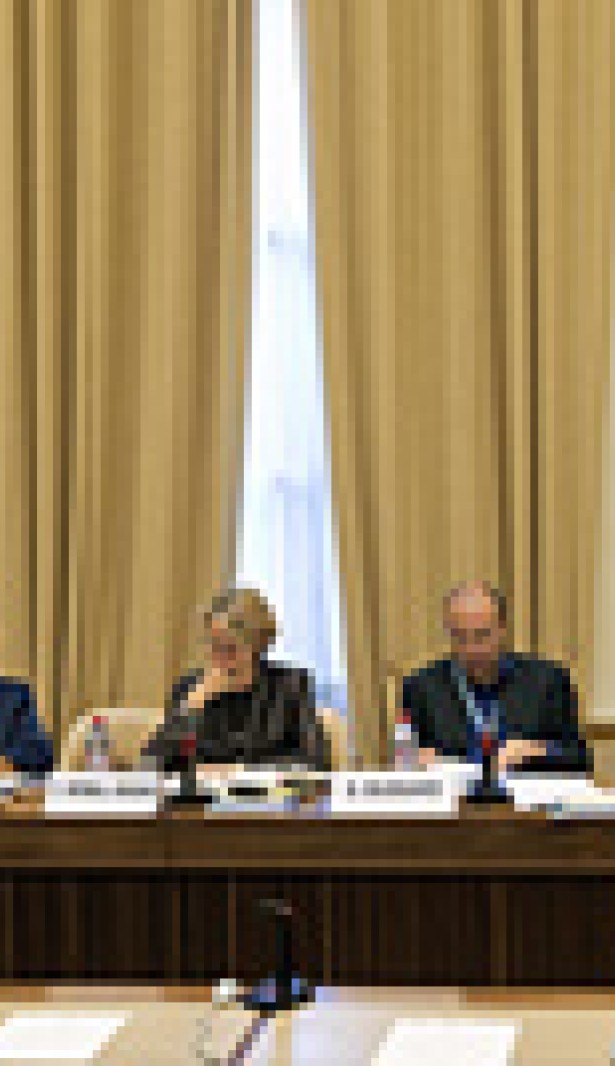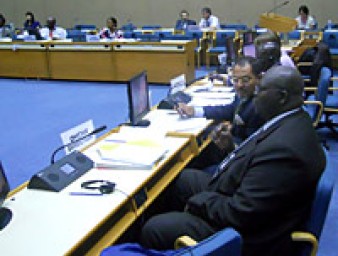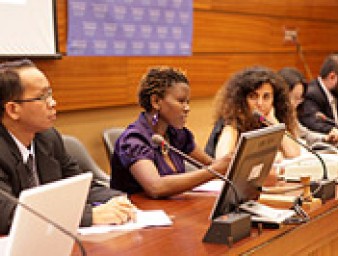Freedom of expression empowers people to claim human rights
03 May 2011

“When people’s rights are not realised and their voices are silenced, they will at some point rise up to assert those rights,” High Commissioner for Human Rights Navi Pillay said on 3 May in a keynote speech marking World Press Freedom Day.
“Freedom of expression means an open space not only for the media, but also for whole societies. The free flow of information empowers people to claim their rights in the public arena…Despite the determined efforts of more than a few States to suppress the dissemination of information that is inconvenient to them, brave individuals have always found ways, using existing technologies, to bypass obstacles and press for change,” she said.
“The recent protests in North Africa and the Middle East have been all about human rights: economic, social and cultural rights, as well as civil and political rights such as the right to genuine democracy, the right not to be persecuted by the state, and the rights to freedom of expression and assembly,” Pillay added.
She paid tribute to the courage and determination of journalists and those who exercise their right to freedom of expression. “In so doing, they enable the rest of us to monitor and defend the realisation of many other human rights.”
The media has paid a heavy price for its sustained and courageous efforts to keep local and international populations informed. By the end of April, four journalists had been killed in Libya, two in Bahrain and one each in Yemen, Egypt, and Tunisia. Another three had been killed in Iraq.
In all, three-quarters of all the journalists killed so far this year have lost their lives covering news stories in North Africa and the Middle East. Journalists were killed in Mexico, the Philippines, Pakistan and Viet Nam, and many more were attacked in different corners of the world.
The High Commissioner underlined the importance of social media and new technology in upholding freedom of expression.
“I strongly believe that the Internet should remain as open as possible, and stress that any restriction that may be imposed on an exceptional basis – for example to prohibit the dissemination of child pornography or material that amounts to incitement to commit serious crimes or to racial hatred – must be done in strict compliance with the requirements set out under international human rights law,” she said.
She pointed out that the right to freedom of expression, as laid down in article 19 of both the Universal Declaration of Human Rights and the International Covenant on Civil and Political Rights, also accommodates the uses of the Internet and social media.
The article states that “everyone shall have the right to seek, receive and impart information and ideas of all kinds, regardless of frontiers, either orally, in writing or in print, in the form of art, or through any other media of his choice.”
Read the full speech of the High Commissioner
3 May 2011

VIEW THIS PAGE IN:



